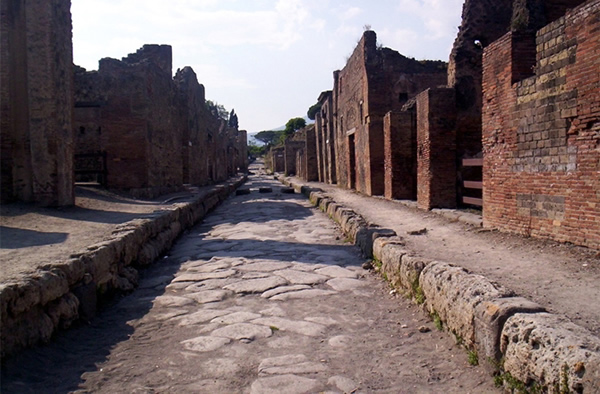Pompeii Walls Crumble Under Rain and Red Tape
Pompeii Walls Crumble Under Rain and Red Tape
An emergency meeting has been called for tomorrow by Italy’s culture minister after a series of collapses this weekend have raised concerns about the fate of the ancient Roman city of Pompeii.
Preserved under volcanic ash from a devastating eruption of Mount Vesuvius in 79 A.D., and rediscovered in the 18th century, Pompeii is now crumbling — threatened by red tape and heavy rain.
An arch supporting the Temple of Venus, the Roman goddess of beauty, crumbled during a rainstorm on Saturday, followed by the collapse on Sunday of the wall of a tomb around 5.5 feet high and 11.5 feet long in the necropolis of Porta Nocera and another wall about 8 feet high and 13 feet long in Via di Nola, the major road.
All the affected areas have been closed to the public.
“Right when Paolo Sorrentino’s ‘The Great Beauty’ won the Academy Award for best foreign language film, walls tumbled down in Pompeii,” culture minister Dario Franceschini said.
“It’s a warning. We must believe in the beauty of our country and preserve it with pride,” he added.
Franceschini, who was appointed last month in the new government of prime minister Matteo Renzi, called for an emergency meeting on Tuesday to assess the damage, verify routine maintenance as well as the progress of the EU-backed Great Pompeii Project to restore the archaeological site.
Visited by more than two million visitors per year, Pompeii has been decimated by continuous collapses.
“For every crumbling that is reported, there are another nine that do not make news,” Antonio Irlando, president of the Cultural Heritage Observatory, told reporters.
In 2010 the collapse of the House of Gladiators caused an international outcry, raising doubt about Italy’s ability to properly protect its archaeological heritage.
The accident prompted a EU-backed 105 million-euro project to save the ancient city.
Although some conservation work started last year, only about 10 million has been used.
An innumerable series of complaints filed by companies whose bids for contracts have been turned down, have slowed the entire project.
But time is running short: the money needs to be spent by 2015, or funding will be withdrawn.
“At the moment, a plan to ensure strong drainage for rainwater is desperately needed. Without it, Pompeii is destined to collapse entirely,” Giovanni Puglisi, the head of Italy’s national UNESCO commission, warned on Monday.
Image: A street in Pompeii. Credit: Rossella Lorenzi(Mar 3, 2014 01:06 PM ET // by Rossella Lorenzi)












